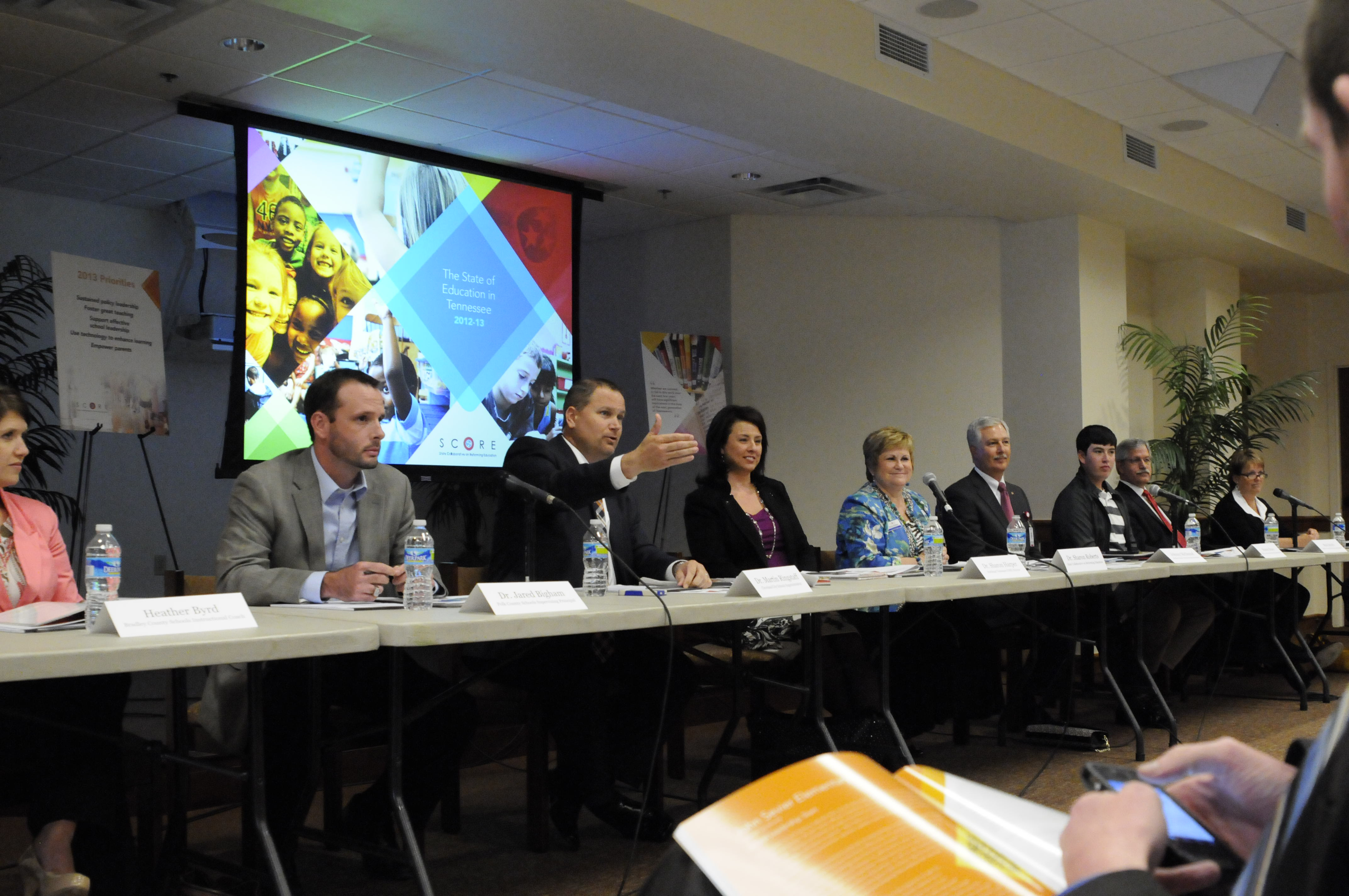Tennessee school policy creates cost, concern for local leaders
Friday, January 1, 1904
CLEVELAND, Tenn. - The state's aggressive push to lift student performance is mostly a welcome change for Southeast Tennessee educators. But a lack of accompanying resources and other unintended consequences from changing state law have created new challenges for school districts in the region.
Superintendents and educators from across Southeast Tennessee met with state reformers Tuesday, noting the headway districts have made in rolling out new teacher evaluations, implementing new and tougher teaching standards and increasing focus on technology in the classroom.
And while those changes are viewed as mostly good, they have left districts more pressed for time and resources, officials said at a panel discussion at Lee University hosted by the State Collaborative on Reforming Education.
"If you want your school systems to be what you want them to be, it takes funding," said Cleveland City Schools Superintendent Martin Ringstaff. "The intentions are good, but there's a domino effect all the way down."
Take the state's tech push.
In mandating that all districts take online state tests in 2014, the state left locals with the monumental task -- and cost -- of upgrading weak technological infrastructures and replacing or upgrading thousands of computers.
The governor's allocation of about $50 million to the cause won't come close to covering the cost. Cleveland will receive about $277,000 of the pot, while officials estimates it will cost the district about $1 million to get fully upgraded.
The move to the more universal Common Core teaching standards is also viewed as a step in the right direction. The transition will allow teachers to cover fewer overall standards, but dig deeper into the concepts taught.
But schools are currently trying to implement the new standards, while still being tested on the old ones.
"It's very frustrating for our teachers now," said Cleveland board member Dawn Robinson. "They have so much to cover and not enough time to cover it."
But officials present repeatedly noted that such changes are ultimately good. And definitely necessary.
Across Southeast Tennessee school districts, more than half of elementary students don't read at grade level. More than half also don't meet standards in reading.
Those results are "unacceptable," said Sharon Harper, director of the Southeast Tennessee CORE, a regional office of the Tennessee Department of Education.
"I have two children," she said. "That means one of them would be proficient. And one of them would not be. I am not going to choose which one of my children will not be successful."
Hamilton County, the largest and most diverse district in the region, has even further to go in improving student achievement.
About half of elementary students read at grade level and about 45 percent meet math standards, according to the Tennessee Report Card.
To boost achievement locally, Superintendent Rick Smith said district leaders are spending much of their energy on teacher and principal quality. A district-created teacher evaluation model is providing daily improvement in instruction. And Smith has made reshaping the principal's role a key effort of his tenure.
"I need to find 76 incredible principals," he said. "I have a team of people working hard on that every day. And of course, we need to have 2,700 strong teachers. And that's our challenge."
Contact staff writer Kevin Hardy at khardy@timesfree press.com or 423-757-6249.

